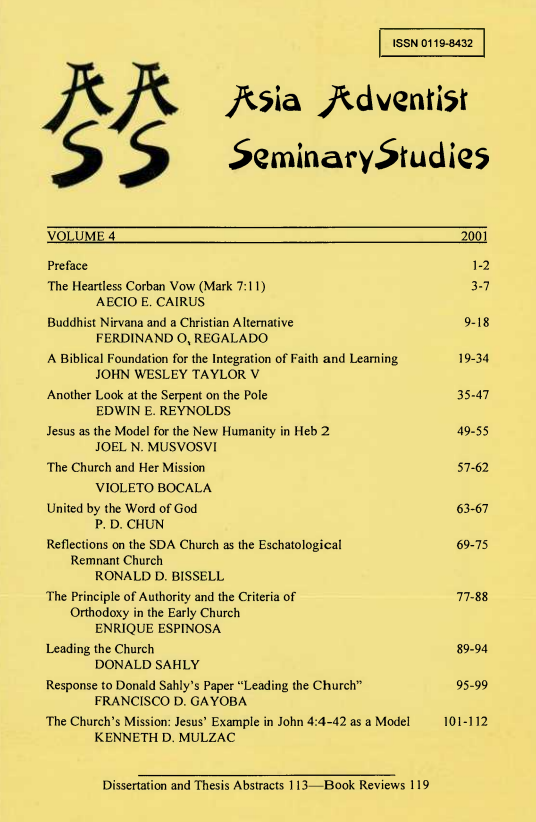Buddhist Nirvana and a Christian Alternative
Abstract
In the last issue of the Asia Adventist Seminary Studies, Jon L. Dybdahl,
Professor of World Mission and President of Walla Walla College in Washington,
U.S.A, underscores "the theological challenge" of Buddhism as one of the
challenges Christians are experiencing vis-à-vis Buddhism's emerging influence.
He notes, "Adventism (and most of Christianity at large) has not taken seriously
the theological challenge of Buddhism."1 Some of Buddhism's teachings that
"present a major challenge to the heart of Christianity and its theology," according
to him, are "the concept of God as an all-pervasive impersonal force, of
reincarnation as a fact, of meditation as self-culture and a way to discover God
inside, and of Buddhist enlightenment."2 Although Dybdahl does not include the
Buddhist theology of Nirvana in particular as one of the theological challenges, the
end of all these theologies, nevertheless, is Nirvana—the ultimate goal of the
Buddhist's life. Thus, I write this paper in response to such a challenge.
In this paper, I will attempt to analyze and evaluate the Buddhist theology of
Nirvana, both in the Mahayana and Hinayana traditions, as to whether it is
philosophically and practically valid. Then I will offer a Christian answer to such
teaching by discussing eternal life as a better alternative than the Buddhist Nirvana.
Thus, it is the purpose of this paper to show that the Christian teaching of eternal
life is better than the Buddhist concept of Nirvana.
1Jon L. Dybdahl, "Meeting the Challenge of Buddhism in a Changing World," Asia
Adventist Seminary Studies 3 (2000): 81.
2Ibid., 82.

